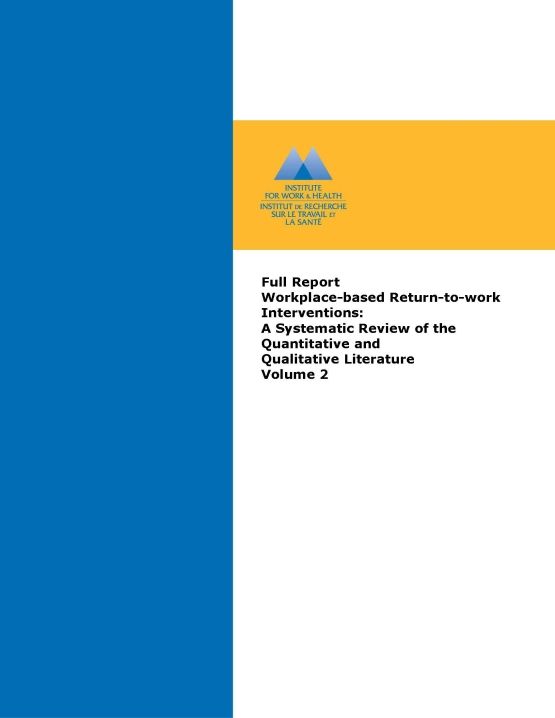Employers, insurers and workers have expressed a growing interest in workplace-based return-to-work (RTW) intervention studies. However, studies in this area have been scarce and have been conducted using a variety of research designs. At the request of the Workplace Safety & Insurance Board in Ontario, a systematic literature review of international studies published since 1990 was conducted by the Institute for Work & Health to determine what makes RTW interventions effective.
The first objective of this review was to synthesize evidence on effectiveness of workplace-based RTW interventions and strategies that assist workers with musculoskeletal disorders and other pain-related conditions to return to work after a period of work disability. The second objective of this systematic review was to expand our understanding of injured or ill workers’ and stakeholders’ experiences of the process of return to work, through inclusion of the qualitative research on return to work. Combining the quantitative and qualitative literature within a single systematic review is somewhat unique. This approach widens our understanding of the RTW process by drawing attention to issues and gaps in knowledge that may not have been taken into account in the quantitative studies.
The knowledge gained from this systematic review of the evidence, included in this report, is essential to developing the foundation for knowledge transfer and exchange for employers, insurance companies, workers, unions, and other stakeholders.
